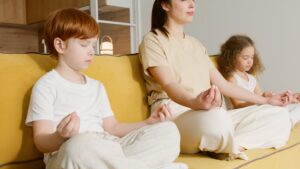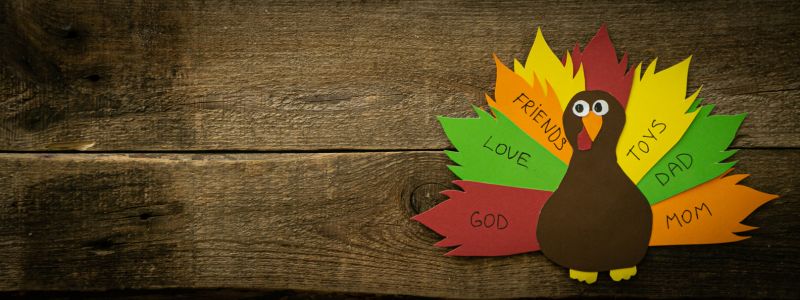When a new year rolls around, it’s prevalent for adults to set new goals to make the next 12 months better, but what about the kiddos? Don’t leave them out; they can also set goals for the new year. Setting goals gives children and teens a sense of purpose and responsibility and is a fun, family bonding activity. Here are some tips for setting age-appropriate resolutions for a healthier, happier year.
Resolutions for Preschoolers
Set your children up to have good habits in adulthood by establishing them while they are young. Making resolutions is a great way to jump-start these habits. New Year’s Resolutions might be hard for younger children to understand, try and explain it to them in terms they will understand; these are goals that will make them better people.

- Share toys: work on sharing toys with siblings and friends without getting upset or fighting.
- Try new foods: try at least one bite of new food.
- Express feelings: work on using words to express emotions instead of crying and throwing a fit.
- Put away toys: will put away toys after playing with them without being asked.
- Say thank you: – will say thank you every time something is given to me.
Resolutions for Elementary and Tweens
Making new years resolutions for older kids can be a fun learning experience. Parents should explain that the focus of a new years resolution isn’t about what we do that’s bad but focus on adding value to life and the process of reaching a goal. This will promote more mindful decision-making.

- Read daily: try to read at least 30 mins a day, if not more.
- Keep room organized: make sure room and closet stay organized.
- Make bed daily: make the bed every morning without being told.
- Save money: set a savings goal for allowance.
- Express feelings: will openly share feelings with others without being afraid.
Resolutions for Teens
Teenagers are old enough to understand and set their new year’s resolutions. But it’s still a good idea to introduce them to develop healthy goals for the year and not focus on specific goals. Goals centered around food and diet can create unhealthy eating habits and body images, so it’s important to avoid focusing on these goals. Instead, try focusing on trying out new physical activities each week.

- Drink more water: make more effort to drink at least 6 -8 cups of water daily.
- Be kind: Perform one act of kindness every week like, holding doors for others, donating allowance to charity, baking cookies for elderly neighbors, etc.
- Donate items: Donate unused or unwanted clothing and shoes to a charity or local organization.
- Social media break: once a month, take a break for at least 24 hours from social media.
- Speak positively: refrain from saying negative things about myself; instead, speak positively.
Resolutions for the Family
Strengthen your family bond and make lasting memories by setting goals and resolutions as a family. These family goals will teach kids the skill of teamwork. Sit down and discuss the goals you want as a family.

- Meditate: 10 minutes of meditation can add calmness to your daily life and is an excellent break from screens.
- Volunteer: give back at least once a week or once a month by volunteering at local organizations, like Meals on Wheels, animal shelters, park clean-ups, etc.
- No devices: put away devices during dinner and spend the meal sharing your highs and lows of the day.
- Family game night: plan family game night once a week
- Be more Eco-friendly: make an effort to use less plastic; instead, try using reusable bottles, containers, lunch bags, etc.
The new year might have already started, but you still have time to set your goals and resolutions with the kids. The best thing to remember is, you are the example. If you stick with your resolutions, your kids will be more than likely to do the same, and you will be instilling great habits for the future.




